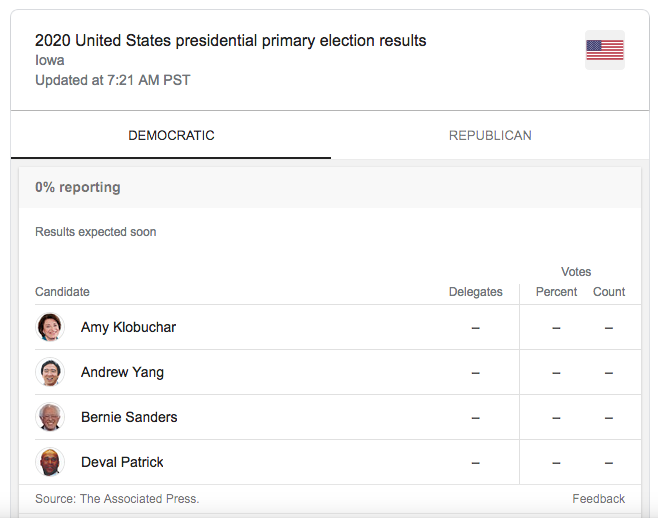
Retired astronaut Mark Kelly, a Democrat, announced his candidacy for the party nomination for the Arizona Senate. He tops the 4th Quarter fundraisers list.
Feb. 10, 2020 — Continuing to look at the just released 4th Quarter fundraising figures, below is a chart of the top Senate candidates (30) who raised more than $1 million in the previous quarter.
Of the top 30 Senate fundraisers, 17 are Democrats and 13 are Republicans. The incumbent to non-incumbent ratio is the same as the partisan division, 17 incumbents versus 13 non-incumbents pertaining to the $1 million-plus 4th Quarter 2019 fundraisers. The top two 4th Quarter fundraisers — Arizona retired astronaut Mark Kelly and retired Marine Corps pilot Amy McGrath — are both Democratic challengers.
Among the top 10 Senate fundraisers, both parties place five candidates in the category. In 10 states, opponents both exceeded the $1 million receipt mark for the quarter just ended.
SENATE RECEIPTS (In Millions)
| CANDIDATE | PARTY | STATE | INCOME | COH |
|---|---|---|---|---|
| KELLY, MARK | D | AZ | $6.219 | $13.609 |
| McGRATH, AMY | D | KY | $6.152 | $9.133 |
| McCONNELL, MITCH | R | KY | $4.587 | $11.579 |
| McSALLY, MARTHA | R | AZ | $3.990 | $7.660 |
| GRAHAM, LINDSEY | R | SC | $3.837 | $10.337 |
| HARRISION, JAIME | D | SC | $3.553 | $4.700 |
| JAMES, JOHN | R | MI | $3.532 | $6.085 |
| GIDEON, SARA | D | ME | $3.439 | $2.778 |
| HICKENLOOPER, JOHN | D | CO | $2.756 | $3.216 |
| CORNYN, JOHN | R | TX | $2.697 | $12.117 |
| PETERS, GARY | D | MI | $2.487 | $8.037 |
| KENNEDY, JOSEPH | D | MA | $2.405 | $5.544 |
| COLLINS, SUSAN | R | ME | $2.228 | $7.195 |
| SHAHEEN, JEANNE | D | NH | $2.040 | $5.758 |
| GARDNER, CORY | R | CO | $1.969 | $7.752 |
| JONES, DOUG | D | AL | $1.898 | $5.477 |
| TILLIS, THOM | R | NC | $1.885 | $5.307 |
| PERDUE, DAVID | R | GA | $1.838 | $7.830 |
| ERNST, JONI | R | IA | $1.676 | $4.856 |
| SMITH, TINA | D | MN | $1.670 | $3.623 |
| GREENFIELD, T. | D | IA | $1.605 | $2.158 |
| CUNNINGHAM, CAL | D | NC | $1.602 | $1.701 |
| HAGERTY, BILL | R | TN | $1.504 | $3.010 |
| WARNER, MARK | D | VA | $1.490 | $7.460 |
| MARKEY, ED | D | MA | $1.387 | $4.550 |
| DAINES, STEVE | R | MT | $1.386 | $5.037 |
| HEGAR, MJ | D | TX | $1.142 | $1.004 |
| SULLIVAN, DAN | R | AK | $1.129 | $5.716 |
| BOLLIER, BARBARA | D | KS | $1.067 | $0.810 |
| LUJAN, BEN RAY | D | NM | $1.016 | $2.001 |





 Feb. 3, 2020 — The final Iowa Caucus research surveys are providing very different results, while what is traditionally the state’s most reliable poll, from the Des Moines Register through Selzer & Company, is being held back.
Feb. 3, 2020 — The final Iowa Caucus research surveys are providing very different results, while what is traditionally the state’s most reliable poll, from the Des Moines Register through Selzer & Company, is being held back.